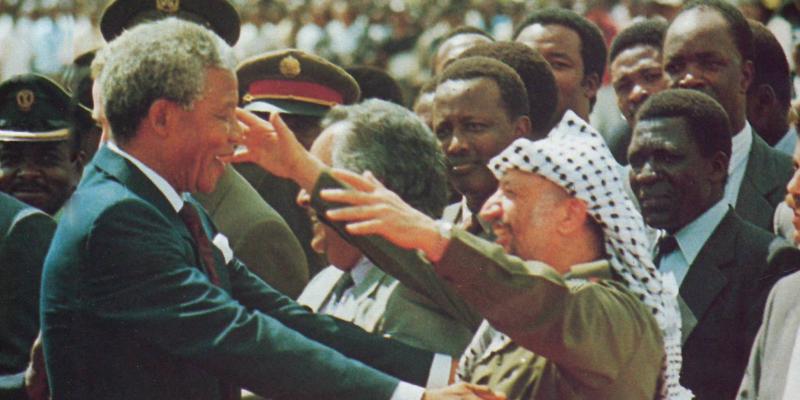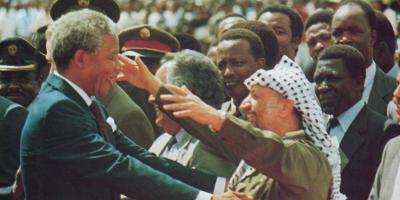Days after his release from the prison where he spent 27 years in February 1990, Nelson Mandela, an icon of the anti-apartheid movement, warmly embraced Palestinian leader Yasser Arafat in a symbol of his support for a cause that is still backed by the ruling African National Congress (ANC) in South Africa. That gesture was as controversial then as South Africa's support for the Palestinian cause is today, but Mandela did not care about the criticisms. The Palestine Liberation Organization, led by Arafat, was a steadfast supporter of Mandela's struggle against white minority rule, and many South Africans see a similarity between his fight and the Palestinian resistance to Israeli occupation. Mandela's grandson, Mandla Mandela, stated in an interview ahead of the tenth anniversary of his grandfather's death, "We were fortunate to have their support; we were able to attain our freedom. My grandfather said that our freedom is incomplete without the Palestinian struggle."
Mandla Mandela, a member of parliament from the ANC, hosted a conference in Johannesburg in solidarity with the Palestinians. Attendees included members of the Palestinian Islamic Resistance Movement (Hamas), which Israel vowed to retaliate against following its attack on towns in southern Israel on October 7. Since that attack, Israel has bombarded the Gaza Strip, and the Hamas-run government announced that the bombings had resulted in the deaths of over 15,500 Palestinians and displaced more than 75% of the population of 2.3 million. Last month, the ANC backed a parliamentary move to suspend diplomatic relations with Israel until it agrees to a ceasefire in Gaza. Some members of the Jewish community in South Africa criticized the ANC's stance, noting that Mandela himself ultimately sought to build relations with Israel. Historian David Saks, author of "Jewish Memories of Mandela," stated that Mandela was the only South African president to have visited Israel since 1994, doing so after leaving office, and that he was "warmly received by the Israeli people." He referenced then-Prime Minister Ehud Barak and then-President Ezer Weizman as "my friends." Saks added, "He pointed to the way things should be (diplomatically with Israel), but (things) did not go that way."




